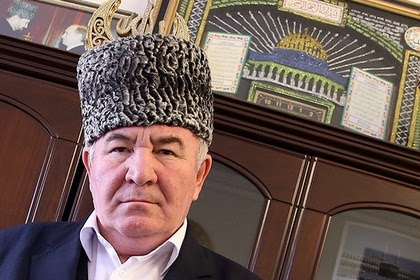North Caucasus Grand Mufti Endorses Female Circumcision
TBILISI - The Grand Mufti of Russia’s North Caucasus republic Karachay-Cherkessia, Ismail Berdyev, has endorsed the practice of genital mutilation of young girls in nearby Dagestan, saying female circumcision “does not contradict the tenants of Islam and is necessary to quell unnecessary energy and guarantees the purity of future brides,” according to news portal kavkaz-uzel.
In an August 15 radio interview with Russia’s Govorit Moskva, Berdyev said that the practice of female genital mutilation (FGM) is "a ritual particular to Dagestan", but one that does not violate the region’s social or religious mores.
Berdyev’s comments came only days after Moscow-based human rights organization Pravovaya Initsiativa, or Legal Initiative, filed a report on FGM in Dagestan.
According to Pravovaya Initsiativa’s findings, female circumcision operations take place in makeshift, unsanitary conditions and are usually carried out on girls under the age of three.
Villagers and local religious clerics justify the practice as a way to reduce the sensitivity of young girls’ genital organs to avoid any future "immoral behavior" once they become adults, the human rights group’s report said.
The human rights organization accused Russian authorities of doing little to crack down on the practice, saying local law enforcement officials and the FSB security services turn a blind eye to the ritual.
Pravovaya Initsiativa’s report included a comment from Dagestan’s children's ombudswoman, Intizar Mamutayeva, who condemned the ritual as "human rights violation against children."
Mamutayeva was dismissed from her position on Monday and replaced by the republic’s former Deputy Justice Minister Rabiyat Zakavova, RFE/RL reported Tuesday.
UNICEF, the United Nations’ children’s organization, estimates that over 200 million women have undergone FGM in more than 30 countries around the world.
Dagestan, a Scotland-sized Muslim republic on Russia’s southern fringe, has suffered from a violent anti-Moscow insurgency since the late 1990s.
The isolated mountainous region, home to dozens of ethnic groups, has historically been a stronghold of religious and cultural practices that operate outside Moscow’s authority.
By Nicholas Waller
.












